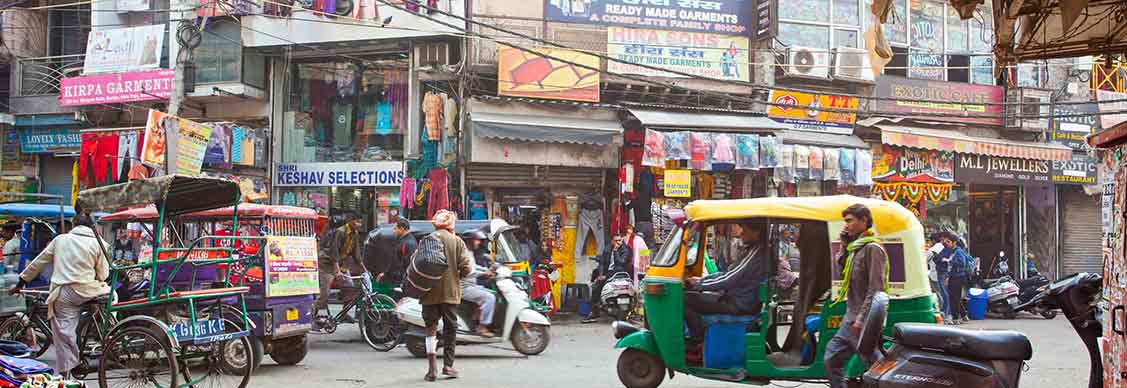How can developing world cities blend resilience with growth?
New and existing cities need to manage climate risks for fast-growing populations
All cities are feeling the pressure of creating a low-carbon future yet as the Global North starts to retrofit its buildings and rethink energy use, the Global South is facing an augmented set of challenges.
Many cities across Asia and Africa are undergoing rapid urban growth while contending with the worst effects of climate change.
In Sub Saharan Africa, Dar es Salaam, Kinshasa and Nairobi are expected to see their populations grow by 4% per year up to 2035. Dhaka, the capital of Bangladesh, already has the highest population density in the world.
Issues such as overcrowded housing and congested infrastructure, unaffordability, and environmental damage are increasingly commonplace.
At the same time, Global South cities are at the sharp end of extreme weather, a growing risk often exacerbated by poor urban planning and unregulated, haphazard real estate construction. Due to their location, the likes of Ho Chi Minh City, Manila and Mumbai are particularly susceptible to rising sea levels.
“Decarbonization is just one of a multitude of acute challenges that cities in the Global South must tackle even when issues like income, health and education may seem more immediately pressing,” says Jeremy Kelly, Lead Director, City Futures at JLL.
Fresh thinking for fast-evolving cities
Unlike cities in the Global North, much of the building stock and infrastructure that will exist in emerging cities by 2050 has yet to be built. Furthermore, some countries will be constructing cities from scratch. COP27 host Egypt is developing 40 new cities for its 106 million-strong population that’s growing at a rate of 2 million people a year.
This enables cities to address decarbonization at a very early stage of development, adopting a whole life carbon approach while designing buildings with adaptability and versatility in mind.
“It’s an opportunity in a way, because it’s easier to embed sustainability at the outset rather than trying to retrofit it,” says Kelly. “The best sustainability strategies embrace a holistic approach, in which the drive towards decarbonization and its implications are considered alongside social value, shared equity, environmental factors, water scarcity and waste management.”
New construction equally needs to ensure that buildings and cities are resilient to the effects of climate change. Scalable, low-cost and nature-based solutions increasingly feature in cities’ strategies.
In 2019 Buenos Aires introduced a new building code with guidelines for adopting measures such as green roofs and walls, solar energy, and efficient water use. Mexico City has planted more than 33 million trees, shrubs and plants as part of its Green Challenge plan.
Embedding sustainability in such ways can deliver financial as well as social and environmental benefits. Acting early on decarbonization will help cities in developing countries attract investment and create green jobs, which in turn make them more competitive, Elke Kornalijnslijper, Head of Sustainability Services for Southeast Asia at JLL, points out.
“Companies with net zero carbon goals will choose locations that help them to achieve those targets,” she explains. “It requires a very strong vision as developing a city takes many years and a long-term commitment but not taking action on a holistic sustainability plan means that, over time, they will become less competitive.”
Bringing in new regulations
While momentum around sustainable real estate continues to build, regulation at government level is essential to drive change.
Some cities in Asia and Africa have few existing building regulations, particularly related to energy efficiency, and even where they exist, they may not be well enforced.
“Governments in the Global South need to fast-track regulation,” says Kelly. “Getting it right from the get-go will avoid the need to undertake costly retrofits in the future but it’s important that regulations are manageable and enforceable.”
It will require different parties working closely together. “Concerted effort is required from the entire ecosystem – the government, private players and the civil society in devising consistent policies on energy, water and waste management at a city level,” says Radha Dhir, CEO of JLL India.
“In India, while the Government is successfully driving Green Corridors and Smart Cities, more policies are needed to facilitate tapping renewable energy, efficient water and waste management. Furthermore, the private sector will also have to invest more to expedite their own net zero targets.”
Cross-border collaboration between the North and South will also be key. “As the largest emitters, and responsible for the bulk of historical emissions, the Global North has a moral imperative to step up,” says Kelly. It can help close the knowledge and skills gap to help Global South cities to kickstart their decarbonization journeys.”
Sharing technology and innovative solutions will not only make buildings more sustainable in terms of construction, but it will also enable all stakeholders – be they governments, developers or citizens – to measure and benchmark results.
Some Global South are already highlighting why technology will be critical. Thailand’s fully-integrated One Bangkok district was designed with future flood levels in mind, and also tracks energy, waste and water to gauge and reduce usage. Similarly, India’s Indore Smart City integrates digital technology to better respond to its citizens.
With all eyes on the challenges faced by the Global South at COP27, the need for a holistic and future-proof approach to sustainable planning has never been more evident, says Kornalijnslijper.
“After all, buildings are generally designed to last for decades,” she says. “What we develop today will impact how we live in our cities for the next 50 years.”
